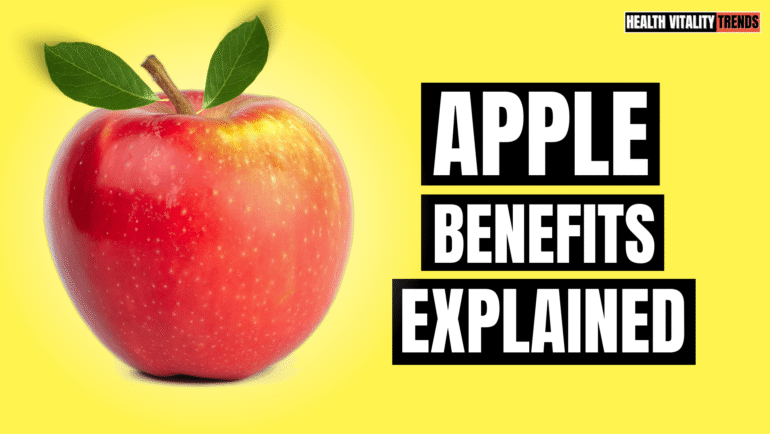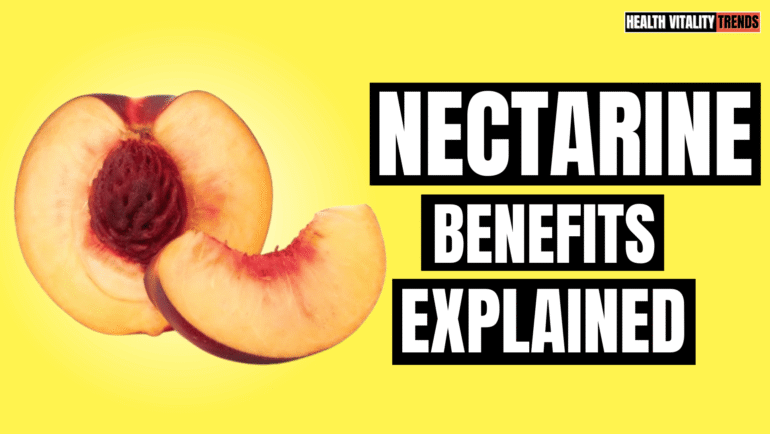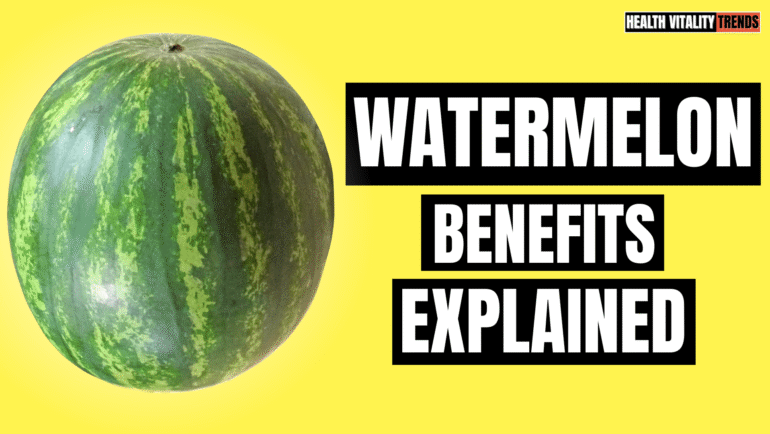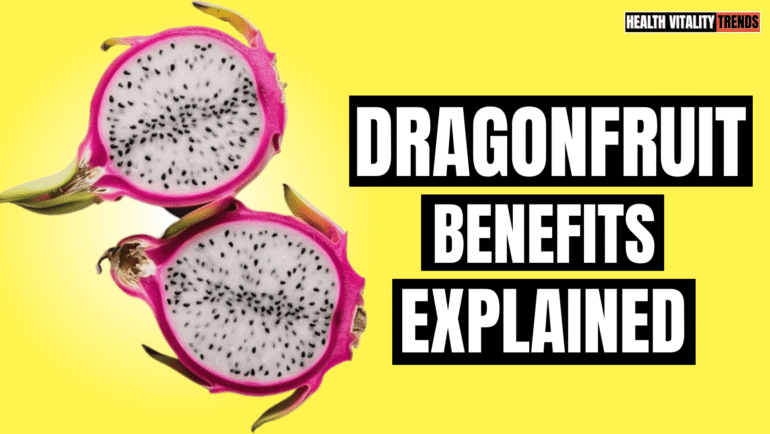
POMEGRANATE: Antioxidant Powerhouse & Its Role in Heart Health
Pomegranate, often called the “Jewel of Winter”, is a vibrant fruit packed with sweet-tart seeds known as arils.
Celebrated for centuries in ancient cultures, it symbolizes fertility, health, and longevity.
Modern research confirms that pomegranates are rich in antioxidants, vitamins, and anti-inflammatory compounds that support heart health, digestion, and immunity.
Whether enjoyed fresh, juiced, or sprinkled on salads, this nutrient powerhouse offers both delicious flavor and impressive health benefits.
What is a Pomegranate?
Pomegranate (Punica granatum)[1] is a fruit-bearing shrub native to the Middle East and Mediterranean region. And now years of international business have made it possible to be cultivated worldwide.
Inside the thick reddish skin, it houses hundreds of juicy arils, each surrounding a crunchy seed.
Traditionally valued in Ayurvedic medicine and Persian cuisine, pomegranates are often associated with festivals and rituals.
In fact, in Greek mythology, the fruit was linked to prosperity and rebirth.

What Does Pomegranate Taste Like?
Pomegranate has a unique sweet-tart flavor with refreshing juiciness. The arils burst with tangy sweetness, while the seeds inside add a slight crunch.
Depending on the variety of fruit you are eating, the taste may range from mildly sweet to sharply tangy. Many compare its flavor to a blend of cranberries and cherries, making it both versatile and refreshing.
Pomegranate Nutrition Facts
Here’s the nutritional profile of 1 cup (174 g) of raw pomegranate arils, based on USDA [2]data:
| Nutrient | Amount |
|---|---|
| Calories | 144 kcal |
| Carbohydrates | 32.5 g |
| Dietary Fiber | 7 g |
| Sugars | 23.8 g |
| Protein | 2.9 g |
| Fat | 2 g |
| Vitamin C | 18 mg (20% DV) |
| Vitamin K | 28 mcg (32% DV) |
| Folate (B9) | 66 mcg (17% DV) |
| Potassium | 411 mg (12% DV) |
| Polyphenols (Punicalagins) | Abundant |
Explanation: Pomegranates are rich in fiber, vitamin C, and potassium. They are especially noted for punicalagins and anthocyanins, powerful antioxidants that may help reduce inflammation and protect against chronic diseases.
Health Benefits of Pomegranate
1. Supports Heart Health – Antioxidants like punicalagins help lower blood pressure and improve cholesterol levels (PubMed, 2013)[3].
2. Boosts Immunity – Vitamin C and polyphenols strengthen the immune system and protect against infections (NIH, 2022)[4].
3. Improves Digestion – High fiber content supports your gut health and prevents constipation.
4. Anti-Inflammatory Properties – Studies suggest pomegranate compounds may help reduce inflammation in arthritis and other chronic conditions (PubMed, 2013)[5].
5. Supports Brain Function – Some research indicates pomegranate juice may improve memory and slow cognitive decline.
6. Potential Anti-Cancer Effects – Laboratory studies suggest pomegranate extract may slow the growth of certain cancer cells, including prostate and breast cancer (NIH, 2017)[6].
How to Eat a Pomegranate
- Fresh Arils: Eat them raw as a snack or sprinkle over yogurt, salads, or oatmeal.
- Juice: Freshly squeezed pomegranate juice is a refreshing and antioxidant-rich beverage.
- Cooking: Use arils in sauces, chutneys, or desserts for a tangy twist.
- Garnish: Sprinkle arils over roasted meats or rice dishes for a pop of color and flavor.
Fun Fact: In Persian cuisine, pomegranate molasses is a staple ingredient used to flavor stews and dips like fesenjan.
How to Store Pomegranate to Keep it Fresh
- Whole Pomegranates: Store at room temperature for up to a week or in the refrigerator for up to 2 months.
- Seeds/Arils: Refrigerate in an airtight container for up to 5 days.
- Juice: Store fresh juice in the refrigerator and consume within 3 days.
- Freezing: Freeze arils in a single layer, then store in freezer bags for up to 6 months.

Possible Side Effects and Precautions
Side Effects
- Digestive Issues – Excessive consumption may cause diarrhea in sensitive individuals.
- Allergic Reactions – Rare, but can include itching, swelling, or difficulty breathing.
- Blood Pressure Drops – Pomegranate may enhance the effect of blood pressure medications, leading to hypotension.
- Sugar Content – While natural, the fruit is high in sugar, which may affect blood glucose levels.
Precautions
- People on Blood Thinners: Pomegranate juice may interact with medications like warfarin.
- Diabetics: Should monitor portion size to prevent blood sugar spikes.
- Pregnant Women: Eating the fruit is safe, but concentrated extracts should be taken only under medical advice.
- Surgery Patients: Avoid pomegranate supplements before surgery due to potential interactions with anesthesia.
Fruits Similar to Pomegranate
- Cranberries – Similar tartness and antioxidant properties.
- Red Grapes – Comparable polyphenol content and sweet-tart flavor.
- Cherries – Sweet and tangy, with high anthocyanins.
- Blackberries – Rich in fiber and antioxidants, offering similar health perks.
Common FAQs About Pomegranate
Q1: Can you eat pomegranate seeds?
Yes, the seeds inside the arils are edible and provide extra fiber.
Q2: Is pomegranate juice as healthy as the fruit?
Fresh juice retains antioxidants, but whole arils offer additional fiber. Store-bought juices may have added sugars.
Q3: Can pomegranate help with weight loss?
Yes. It’s low in calories, rich in fiber, and helps keep you full.
Q4: How many pomegranates should I eat in a day?
One medium pomegranate or 1 cup of arils per day is a healthy serving for most people.
Conclusion
Pomegranate is more than a beautiful fruit—it’s a powerhouse of antioxidants, vitamins, and fiber that supports heart health, immunity, digestion, and even brain function. Its sweet-tart arils can be enjoyed in countless ways, from fresh snacking to culinary creations. Adding pomegranate to your diet is an easy and flavorful step toward better long-term health.
References
- https://en.wikipedia.org/wiki/Pomegranate
- https://snaped.fns.usda.gov/resources/nutrition-education-materials/seasonal-produce-guide/pomegranates
- https://pmc.ncbi.nlm.nih.gov/articles/PMC3678830/
- https://pmc.ncbi.nlm.nih.gov/articles/PMC9228601/
- https://pmc.ncbi.nlm.nih.gov/articles/PMC3612487/
- https://pmc.ncbi.nlm.nih.gov/articles/PMC5628519/








